The meaning of going to school: relationship with knowledge (ras) of rural students
Keywords:
sense, activity-action-relation with knowledge, balances of knowledge and school.Abstract
This article is based on the findings of a research interested in hearing the students’ voice regarding the relationships they establish with the knowledge and the sense they find in their attendance to the school institution. The purpose of the research was to know what sense it has for a group of students from a rural area of Valle del Cauca (Colombia), to go to school. The inquiry was made taking as conceptual support the Anthropo-sociological line of the theory of RAS -Activity-Action-Relation with knowledge. The research was qualitative with a hermeneutical interpretation approach. In the study 11 tenth grade students of a public institution of the municipality of Dagua, Valle del Cauca participated. The information was obtained from the application of balances of knowledge, which, as the name implies, are instruments that seek to establish the relationship with the knowledge built by the students. As a result of the research, it can be pointed out, fundamentally, that students do not find a clear sense in their attendance at school; By virtue of which, they have not established the referents of Taste, Pleasure and Expectation necessary for their configuration.
References
Bauman, Z. (2012). Sobre la educación en un mundo líquido. Barcelona, España: Paidós.
Bautier, E. (2002). Du rapport au langage: question d’apprentissages differéncies pu didactiques? Revue, Pratiques, 113/114, 41-54.
Chacón, E. (2004). El uso del Atlas/ti como herramienta para el análisis de datos cualitativos en investigaciones educativas. Madrid, España: UNED.
Charlot, B. (2008). La relación con el saber: elementos para una teoría. Buenos Aires, Argentina: Editorial Zorzal.
Charlot, B., Rochex, JY., & Bautier, E. (1992). Rapport au savoir et rapport á l’école dans deux colleges de banlieu. Societis Contemporaines, 11-12, 119- 147.
Coffey, A., & Atkinson, P. (2003). Encontrar el sentido a los datos cualitativos. Medellín, Colombia: Universidad de Antioquia.
Duschatzky, S. (1999). La escuela como frontera. Buenos Aires, Argentina: Paidós.
Duschatzky, S., & Birgin, A. (2001). ¿Dónde está la escuela? Buenos Aires, Argentina: Flacso Manantial.
Foucault, M. (2006). La arqueología del saber. Ciudad de México, México: Siglo veintiuno editores.
Freire, P. (1970). Pedagogía del oprimido. Recuperado de https://es.escribd. com/doc/248678979
García León, D. (2014). Minorías lingüísticas en Colombia. Acercamiento desde las políticas públicas y los derechos humanos. Cuadernos de Lingüística Hispánica, (24), 163-182. doi: https://doi.org/10.19053/0121053X.2765
Gimeno Sacristán, J. (2005). La educación obligatoria: su sentido educativo y social. Madrid, España: Ediciones Morata.
Hernández, O. (2010). El sentido de la escuela: análisis de las representaciones sociales de la escuela para un grupo de jóvenes escolarizados de la ciudad de Bogotá. RMIE, 15(46), 945-967.
May, M. (2003). La riqueza de la fenomenología: preocupaciones filosóficas, teóricas y metodológicas. En Morse, J. (Ed.) Asuntos Críticos en los métodos de investigación cualitativa (pp. 139-156).
Medellín, Colombia: Universidad de Antioquia.
Mejía, J. (2011). Problemas centrales del análisis de datos cualitativos. Revista Latinoamericana de metodología de la investigación social, 1(1), 47-60.
Morse, J. (2003). Asuntos críticos en los métodos de investigación cualitativa. Medellín, Colombia: Universidad de Antioquia.
Pelbart, P. (2009). Filosofía de la deserción: nihilismo, locura y comunidad. Buenos Aires, Argentina: Tinta limón ediciones.
Quintana, A. (2006). Metodología de investigación científica cualitativa. En Quintana, A. & Montgomery, W. (Eds.). Psicología: tópicos de actualidad (pp. 47-84). Lima, Perú: UNMSM.
Ruedas, M., Ríos, M., & Nieves, F. (2009). Epistemología de la investigación cualitativa. Revista EDUCERE, (46), 627-635.
Sandoval, C. (2002). Investigación Cualitativa. Bogotá, Colombia: Instituto colombiano para el fomento de la educación superior ICFES.
Ségoléne, L.M. (2013). Le primat de la relation éducative dans le rapport au savoir. En Nafti-Malherbe, C., et Samsom, G. (comps.). Rapport au savoir. Esprit Critique, Revue Internationale de sociologie et de sciences sociales, vol 17.
Sierra, O. L., Urrego, G., Montenegro, S., & Castillo, C. (2015). Estrés escolar y empatía en estudiantes de bachillerato practicantes de Mindfulness. Cuadernos de Lingüística Hispánica, (26), 175-197. doi: https://doi.org/10.19053/0121053X.3685
Silva-Pena, I., Bastidas, K., Calfuqueo, L., Diaz, J., & Valenzuela, J. (2013). Sentido de la escuela para niños y niñas mapuche de una zona rural. Polis, Revista Latinoamericana, 12(34), 243-258.
Zambrano Leal, A. (2016). Pedagogía y Didáctica: esbozo de las diferencias, tensiones y relaciones de 2 campos. Praxis & Saber, 7(13), 45-61.
Zambrano Leal, A. (2015). Escuela y Relación con el Saber: Sentido, sujetos y aprendizajes. Cali, Colombia: Universidad Icesi.
Zambrano Leal, A. (2014). Escuela y Saber: Figuras de aprendizaje en niños de 5° y 9° grado de educación básica. Cali, Colombia: Universidad Icesi.
Zambrano Leal, A. (2011). Pedagogía y Narración escolar: el declive de los conceptos. Córdoba, Argentina: Editorial Brujas.




